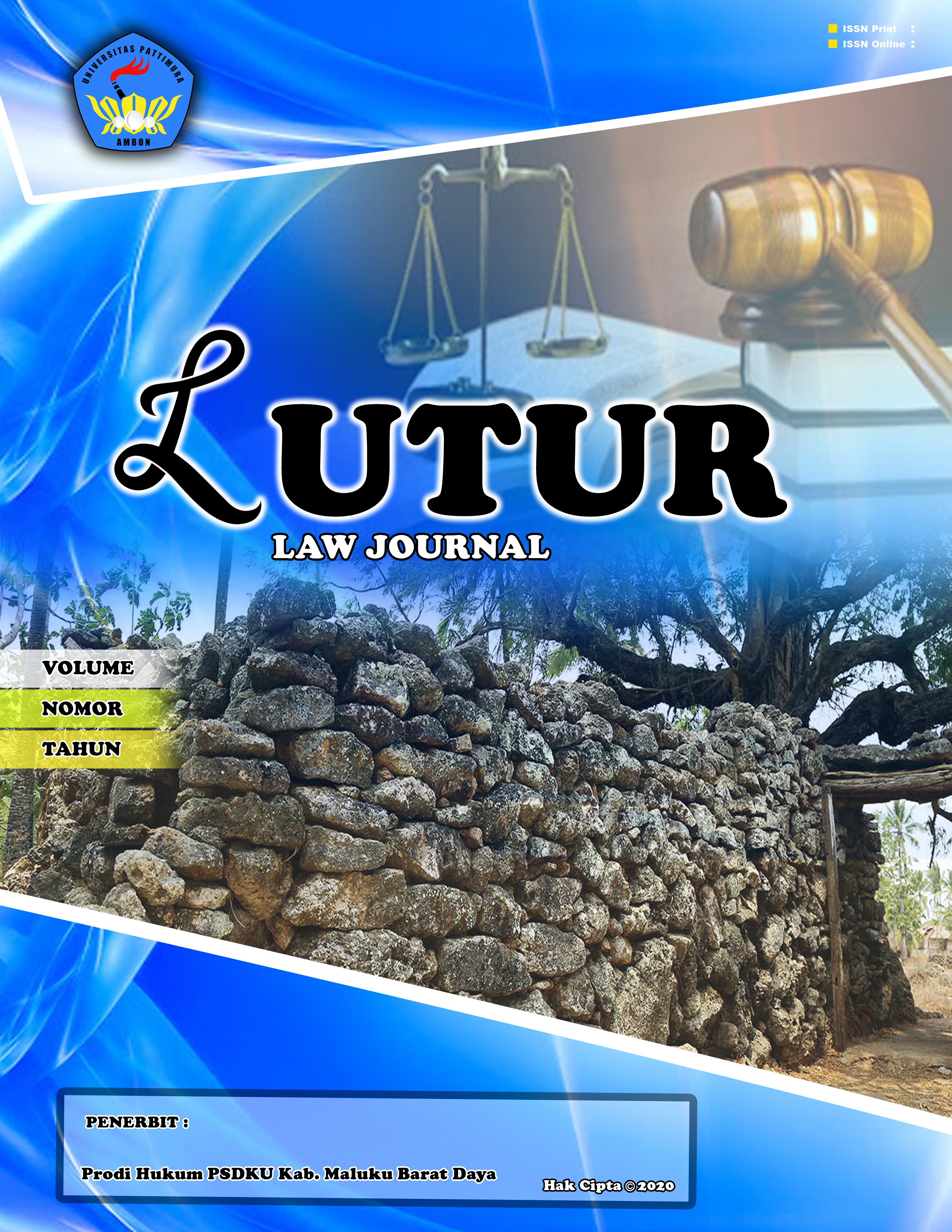Legal Protection for the Dominus in Acts of Zaakwarneming
Abstract
.An incident that often occurs in the life of others is an act without orders from others or voluntary help, this act is called Zaawarneming. Juridical-normative legal research using the Legislation approach, Conceptual approach related to the problem being studied. The findings of this study are that Dominus' protection in the Civil Code includes the Manager's obligation to account for its actions, Dominus' right to reject or accept the Manager' s actions, the Manager's obligation to compensate for damages, Dominus not paying wages to the Manager, and Dominus' right to terminate the act of Zaakwarneming. Currently, existing legal rules focus more on regulating the rights and obligations of Dominus (the owner of the interest) without providing sanctions or a clear compensation mechanism for Dominus if the Gestor (the party carrying out the management act) makes a mistake.
Downloads
References
Joko Sriwododo dan Kristiawanto, Memahami Hukum Perikatan, Yogyakarta: Kepel Press, 2021.
Ronald Saija, et. al. Hukum Perikatan, Yogyakarta: Penerbit Deepublish, 2023.
Satjipto Raharjo, Ilmu Huukum, Bandung: Citra Aditya Bakti, 2000.
Sri Wahyuni, et. al, Hukum Perikatan, Depok: Rajawali Pers, 2020.
Syahrizal Abbas, Mediasi Dalam Prespektif Hukum Syahriah, Hukum Adat dan Hukum Nasional, Jakarta: Kencana, 2011.
Tim ICCE, Demokrasi, Hak Asasi Manusia dan Masyarakat Madani, Jakarta: Perana Media, 2003.
Wijaya Natalia Panjaitan, “Zaakwarneming: Legal Balance for Gestor and Dominus”. TATOHI: Jurnal Ilmu Hukum 4, no. 12 (2025): 916-921.
Copyright (c) 2025 Juliane Irene Tomasoa, Teng Berlianty, Ronald Saija (Author)

This work is licensed under a Creative Commons Attribution-NonCommercial 4.0 International License.
Authors who publish their manuscripts in this Journal agree to the following conditions:
- The copyright in each article belongs to the author, as well as the right to patent.
- Authors are able to enter into separate, additional contractual arrangements for the non-exclusive distribution of the journal's published version of the work (e.g., post it to an institutional repository or publish it in a book), with an acknowledgment of its initial publication in this journal.
- Authors are permitted and encouraged to post their work online (e.g., in institutional repositories or on their website) prior to and during the submission process, as it can lead to productive exchanges, as well as earlier and greater citation of published work.
- Authors have the right to self-archiving of the article (Author Self-Archiving Policy)














